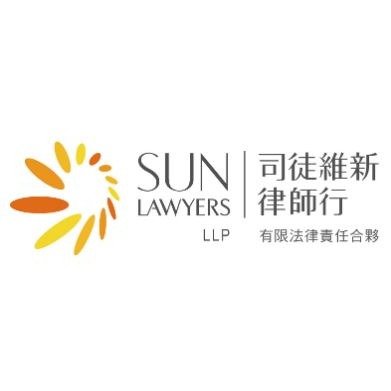Best Estate Planning Lawyers in Hong Kong
Share your needs with us, get contacted by law firms.
Free. Takes 2 min.
Or refine your search by selecting a city:
List of the best lawyers in Hong Kong
About Estate Planning Law in Hong Kong
Estate planning in Hong Kong involves organizing and managing an individual’s estate to ensure that their wishes for the distribution of their assets are fulfilled after their death. This process often includes drafting a will, setting up trusts, and planning for potential tax obligations. The main goal of estate planning is to provide for beneficiaries, minimize estate taxes, and streamline the administration of the estate.
Why You May Need a Lawyer
Several situations may necessitate the assistance of a lawyer specializing in estate planning in Hong Kong. Individuals with complex family dynamics, such as second marriages or blended families, may need legal advice to ensure fair distribution of assets. Those with substantial or diverse asset portfolios might require guidance on tax planning and trust arrangements to maximize benefits for heirs. Additionally, expatriates and foreign nationals owning property in Hong Kong may need legal expertise to navigate both Hong Kong’s legal system and their home country’s regulations.
Local Laws Overview
Estate planning laws in Hong Kong are governed by several key pieces of legislation, including the Probate and Administration Ordinance (Cap. 10), the Wills Ordinance (Cap. 30), and the Inheritance (Provision for Family and Dependants) Ordinance (Cap. 481). There is no estate duty tax in Hong Kong, making it an attractive jurisdiction for estate planning. However, it is crucial to have a valid will that meets the formal requirements under local law to ensure that an individual's wishes are carried out effectively.
Frequently Asked Questions
What is a will, and why do I need one in Hong Kong?
A will is a legal document that specifies how your assets should be distributed after your death. Having a valid will ensures your estate is managed and distributed according to your wishes and can help avoid potential disputes among family members.
Can I draft a will on my own?
While it is possible to draft your own will, it's highly recommended to seek legal advice to ensure your will complies with legal formalities and effectively addresses your estate planning needs.
What happens if I die without a will in Hong Kong?
If you die intestate (without a will), your estate will be distributed according to the rules set out in the Probate and Administration Ordinance, which may not align with your personal wishes.
What is the role of an executor in a will?
An executor is responsible for administering your estate, ensuring your debts are paid, and distributing your assets as outlined in your will.
Are there any taxes on inheritance in Hong Kong?
Hong Kong does not impose any inheritance tax or estate duty, making it a favorable jurisdiction for passing on wealth to beneficiaries.
How can I provide for minor children in my estate plan?
You can appoint a guardian for your minor children in your will and establish a trust to manage assets on their behalf until they reach adulthood.
What is a trust, and how can it be used in estate planning?
A trust is a legal arrangement where a trustee holds and manages assets for the benefit of beneficiaries. Trusts can help minimize estate taxes, provide for children or dependents, and protect assets from creditors.
Can my will be challenged?
Yes, a will can be contested on several grounds, such as lack of mental capacity, undue influence, or improper execution. Proper legal advice and documentation can mitigate these risks.
What special considerations apply to expatriates or foreign nationals?
Expatriates and foreign nationals may need to consider the legal implications of multiple jurisdictions and how local and foreign laws interact. Professional legal advice is essential in such cases.
How often should I update my estate plan?
It's advisable to review and potentially update your estate plan every few years, or after any major life events, such as marriage, divorce, the birth of a child, or a significant change in asset levels.
Additional Resources
Individuals seeking further information on estate planning in Hong Kong can consult governmental bodies such as the Hong Kong Probate Registry, or legal organizations like the Law Society of Hong Kong. These agencies can provide guidance and resources on planning your estate effectively.
Next Steps
If you are considering estate planning, the first step is to gather detailed information about your assets and liabilities. Next, contact a reputable law firm or estate planning attorney in Hong Kong to discuss your wishes and objectives. Professionals can provide personalized advice to ensure your estate plan is comprehensive, legally sound, and tailored to your needs.
Lawzana helps you find the best lawyers and law firms in Hong Kong through a curated and pre-screened list of qualified legal professionals. Our platform offers rankings and detailed profiles of attorneys and law firms, allowing you to compare based on practice areas, including Estate Planning, experience, and client feedback.
Each profile includes a description of the firm's areas of practice, client reviews, team members and partners, year of establishment, spoken languages, office locations, contact information, social media presence, and any published articles or resources. Most firms on our platform speak English and are experienced in both local and international legal matters.
Get a quote from top-rated law firms in Hong Kong — quickly, securely, and without unnecessary hassle.
Disclaimer:
The information provided on this page is for general informational purposes only and does not constitute legal advice. While we strive to ensure the accuracy and relevance of the content, legal information may change over time, and interpretations of the law can vary. You should always consult with a qualified legal professional for advice specific to your situation.
We disclaim all liability for actions taken or not taken based on the content of this page. If you believe any information is incorrect or outdated, please contact us, and we will review and update it where appropriate.
Browse estate planning law firms by city in Hong Kong
Refine your search by selecting a city.















